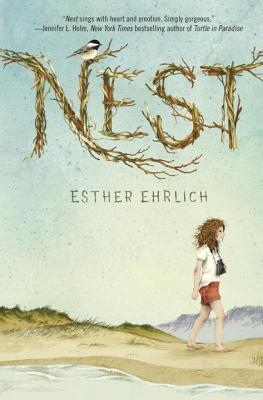 Kehret, Peg. Dangerous Deception
Kehret, Peg. Dangerous DeceptionOctober 16th 2014 by Dutton Juvenile
Emmy's mother works in a department store, where she is in charge of selecting the winner of a yearly contest that grants someone's dream (available at the store, of course!). When Emmy snoops through the entries when the mother is sick, she finds a letter from a girl who says her family is hungry. Her mother can only turn over the details to a social service agency because the store policy is to not contact people individually, but Emmy not only decides to help, but takes the letter to school AND shows her teacher, who decides to turn a blind eye and let Emmy's group collect food for the family as a service project even after Emmy explains the situation. Emmy and her friends collect food from neighbors and arrange with Jelly Bean's brother to drive them to a bad part of town to deliver the food. They do this again, and Emmy talks to the girl, Sophie, who explains that her mother is sick. Things escalate, and Emmy not only talks to an elderly neighbor and climbs into a dumpster to rescue the family cat, but she talks to another creepy neighbor who seems suspicious, and takes a photo of what seems to be stolen merchandise in his apartment. She then leaves her contact information all around Sophie's abandoned apartment and goes to the police with the photo. Jelly Bean's brother crashes his car, and he and his brother end up in the hospital, and things go even more wrong from there.
Strengths: Kehret has done good suspense novels for years, and her following at my library is immense. Her writing is smooth and intriguing. I'm Not Who You Think I Am is in tatters, but the students still check it out. This book certainly has suspense, and the requisite children getting kidnapped and surviving by their wits.
Weaknesses: There are so, so many poor choices made by Emmy that this book just alarmed me from start to finish. Your mother could lose her job if her employer finds out she shared the entries? By all means tell your class and your teacher, as long as you instruct them to keep it a secret. Driving illegally with a teenager who is texting? No problem. Do it several times. Climb into a dumpster. Take a cat on the bus even if it scratches you with it's filthy claws. Make sure creepy criminals with stolen goods can find out exactly where you live. Argh! There are notes in the back of the book for various support organizations, and the mother says at the end that she would have gone through official channels to get the family help, but this included too many bad decisions for my taste. Also, what's with the horrible, computer generated cover? If we make it dark enough, no one will notice how bad the picture is?
 Ehrlich, Esther. Nest.
Ehrlich, Esther. Nest.September 9th 2014 by Wendy Lamb Books
I strongly suggest reading this personally before putting it into a school library.
Admittedly, my problems with this were predominately personal. My best friend has lived with Multiple Sclerosis for over twenty years. My family has been affected by suicide. I cannot imagine giving this book to middle grade readers.
First, this is a historical novel, set in 1972. When the mother is diagnosed with MS, she becomes depressed in the extreme. While I'm sure this is still common, the treatment differs a lot today. We don't necessarily send people right to residential care, and I really don't know that electroconvulsive shock therapy is used to treat either condition. If this book were handed to a student whose parent had MS, I think it would be unnecessarily alarming. Notes at the end of the book (about past and current treatments) would be helpful.
Second, there are a growing number of books about suicide and its aftermath, and I don't think they are entertaining or helpful. I am at the end of my patience with books about parents who can't see past their own grief to help their children.
Most adult readers adore this book, but I would advise adult readers to look at this one and fully understand it before handing it to younger readers.
The only thing I'll say about shock therapy is that it is still used today, and most of the people I know who rely on it hate the way it is depicted in fiction. It is a beneficial medical treatment that helps them live their life, not torture.
ReplyDeleteI tried to give it a balanced review and I knew I was going to have to get it - "why don't you have any of the mock awards books?" is already being asked (because I buy books for kids and not for teachers and parents is apparently not a diplomatic answer) and I do have kids who like the tearjerkers....but honestly I hated it. I wanted to punch her dad in the face and by the halfway mark I just wanted the mother to DIE ALREADY JUST GET IT OVER WITH.
ReplyDelete